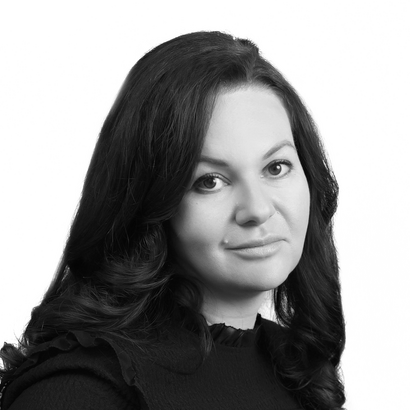Most parents I know keep an unspoken countdown: we track exactly how long until our kids go to college. This number has nothing to do with tuition. It’s a tentative timeline for the end of our marriage—when we presume the children will be too busy to be too damaged by the messy aftermath. I’ve got eight more years to go.
I’m not saying my husband and I are headed for divorce, but there’s a certain thrill in imagining the possibilities. (I’d probably choose a more patient man who is indifferent to sports; he’d want a woman with fewer feelings and more interest in skiing.) We wouldn’t be alone, either—roughly one-third of those who get divorced in the U.S. now file when they’re 50 or older.
The gray divorce, as it’s called, has become something of a status symbol. Sergey Brin, Gisele Bundchen, and, as tabloid readers know all too well, Jeff Bezos have all started fresh recently, and they seem extremely happy about it. Could midlife divorce be the ultimate act of self-care?
The rationale is simple: our tastes and desires can change as we are faced with our own mortality. The person who makes a reliable co-parent can feel more like a grouchy roommate when the children are gone. More importantly, if you know that you can swap your partner out at the halfway point—and are able to have sex without a calendar invite—maybe you’ll value him with the reverence reserved for an Eames lounge chair rather than an Ikea dresser.
The idea is not as far-fetched as some think, says Elizabeth Cohen, a psychologist specializing in divorce who was inspired by her own midlife split. Many of the happily divorced people Cohen knows feel they’ve outgrown their partner and have enough healthy years to find someone (or many someones) who are a far better fit. Having a vibrant career and a flush bank account helps, too.
According to Cohen, the primary reason for these midlife splits is that most of us only start to truly examine what we want once we’ve reached our 40s. Before that, she says, we are more focused on reaching milestones—the degrees, the job title, the kids, the house.
But once we’re no longer burdened by mortgages and homework, our priorities can change, often irrevocably. “You can tell people until you are blue in the face that they are going to feel differently about their partner, but they are not going to believe it until the years pass,” she adds.
Brad, a 48-year-old film producer from the U.K., split from his partner of 16 years once both children entered elementary school. He could have kept working at it, he admits, but he wasn’t ashamed to call it quits once their lives felt more parallel and less intertwined. Diminishing sex drives didn’t help matters. “We ended up on this downward spiral of resentment,” he says.
“It wasn’t like the relationship was awful—we were friends,” says Brad, who now lives a five-minute walk from his ex and is partnered with a woman he met at the Cannes Film Festival. He thinks of his ex as “an estranged sister who I don’t hang out with all that much.”
Pasqualina Perrig-Chiello, professor emeritus at the University of Bern, in Switzerland, specializes in the psychological adaptation to divorce. She says that people tend to recover emotionally from midlife divorces more quickly than we’d previously assumed. Within two years, nearly half of the divorcées she works with say that they have adjusted well to their new lives. One-third describe themselves as thriving, and 80 percent were open to new relationships. Now, she says, “we can look at divorce as an opportunity.”
Jackie Nimer, a 40-year-old executive coach in Scarsdale, New York, says that after 15 years of marriage, she felt stagnant. Her career and sense of self were usurped by her parental responsibilities. “I wouldn’t change the person that I chose as the father of my kids, but for the second part of my life, it might be someone else,” says Nimer, who split from her husband three years ago. “Divorce wasn’t a failure for us.”
Nimer and her ex-husband have a 50-50 custody split, and she uses her “time off” to expand her consulting business and consider her romantic future. After a long hiatus, she took up golfing and discovered Pilates. That wouldn’t have been possible in her marriage, she says, because motherhood always came first: “Now, I’m living life for me and without guilt.”
Matt Lundquist, a psychotherapist in New York, says that many of his patients in heterosexual relationships no longer want to fix things at all costs. More women these days are viewing divorce as necessary to their long-term success. “Love has its limits,” he says. “We end up needing to speak to the honest realities.”
Recently, my 12-year-old told me that she expects that my husband and I will divorce when she and her brother go to college. Playing along, I asked her if she’d be O.K. with that. “Sure,” she said. “As long as you and papa stay friends and still hug.”
When I told my husband, he shrugged, smiled, and reminded me that since I refuse to cook, I should be prepared for the kids to spend the holidays at his place. I wished him luck with the turkey.
Alina Dizik is a Chicago-based writer




